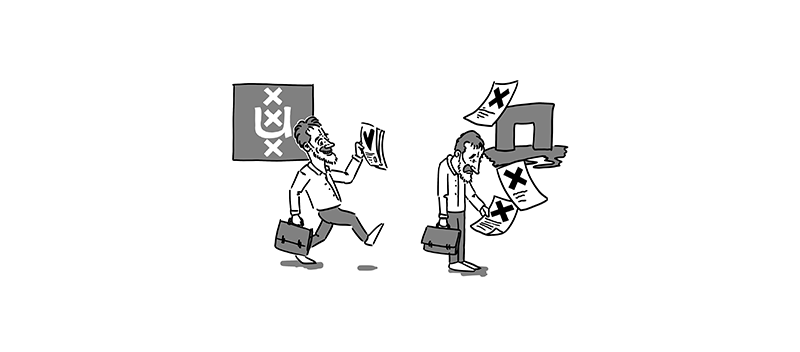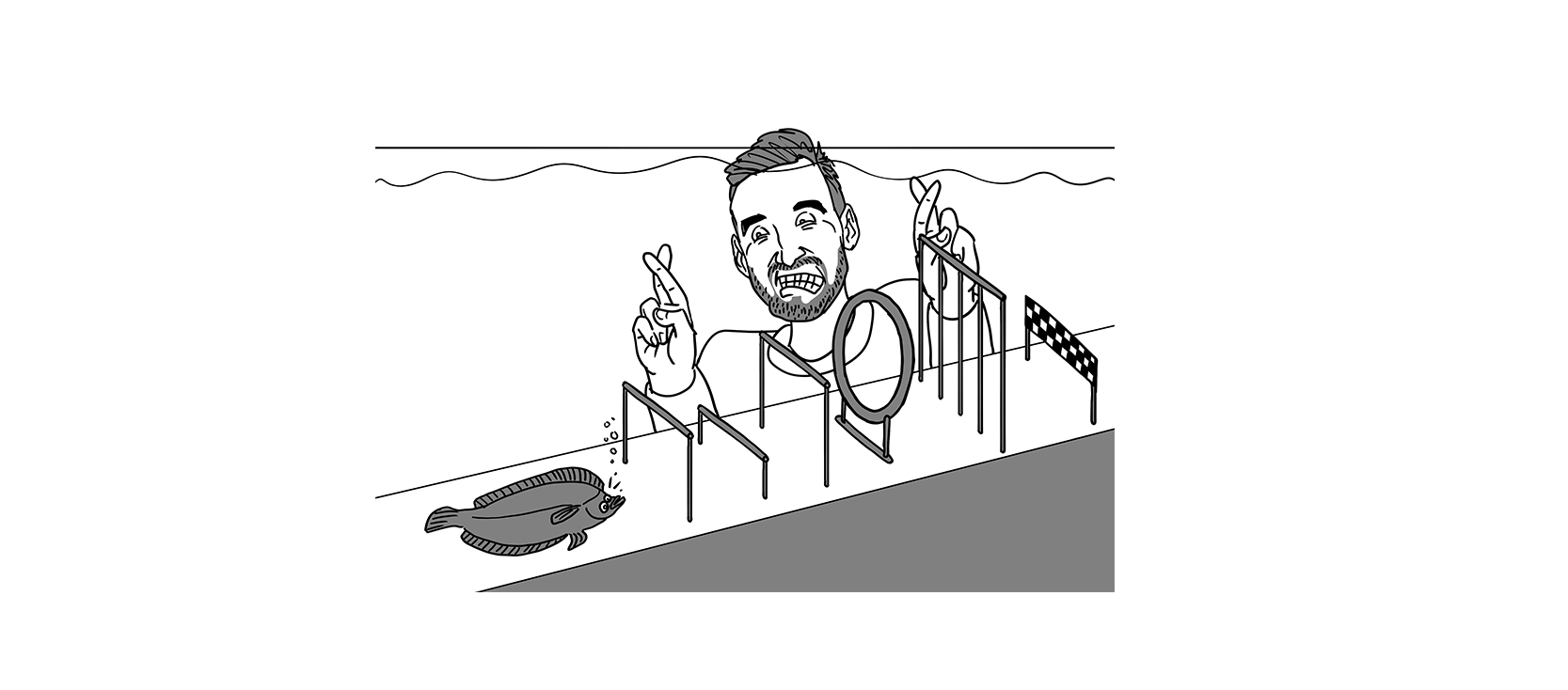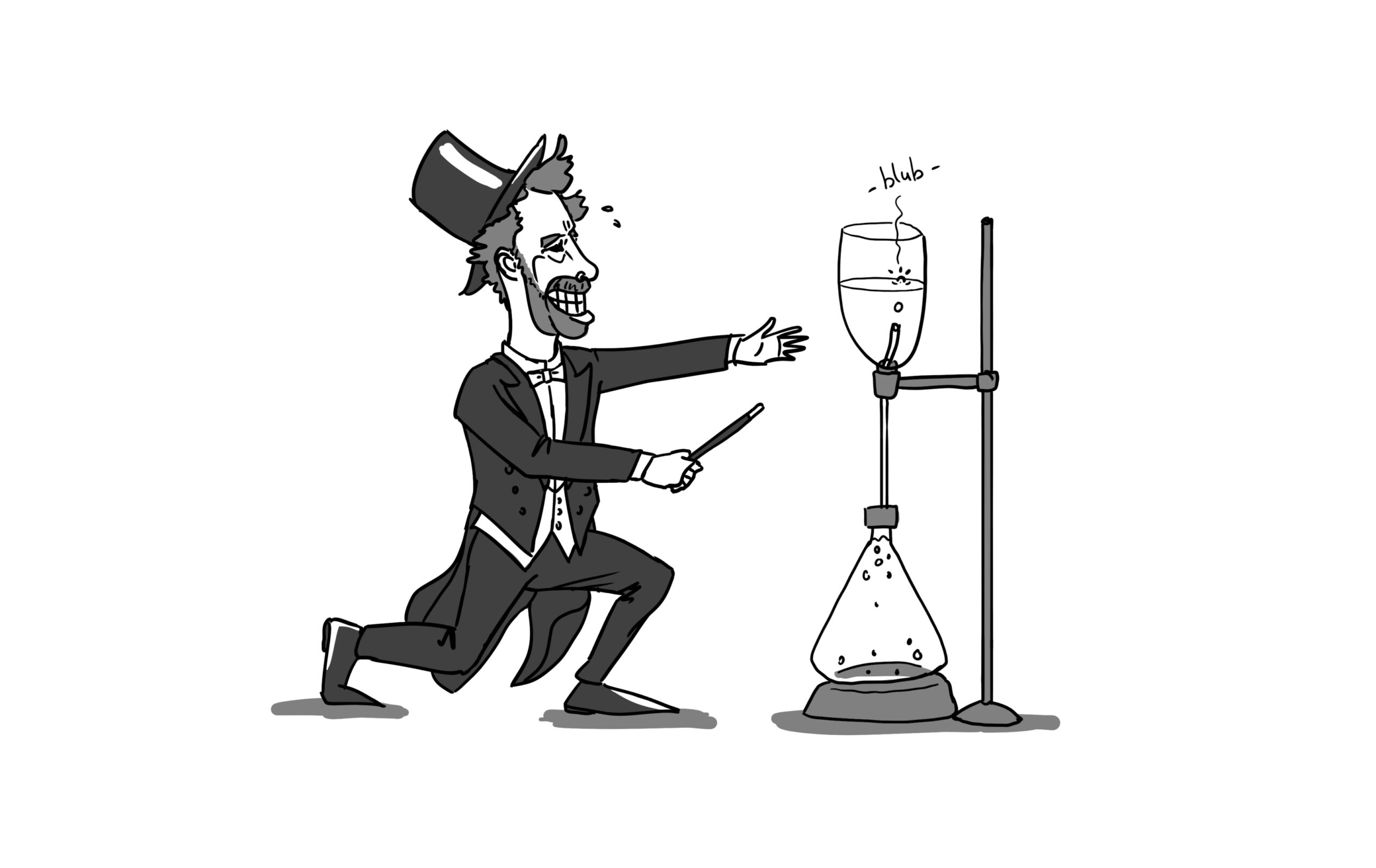A botched experiment, a rejected paper: such things are soon labelled as failures in academia. As for
talking about them — not done! But that is just what WUR scientists do in this column. Because failure has its uses. This time, we hear from Fred Kistenkas, senior researcher in Environmental Research and former assistant professor in Environmental Law.
‘In 2003, I made the switch as a lawyer from Amsterdam’s law faculty to Wageningen Research. I found myself in a completely new world, surrounded by scientists and social scientists. One big difference was in how we publish. During my first years at WUR, I made a new discovery relating to nature conservation law. A colleague encouraged me to publish it in an international scientific journal.
Weeks later, I got my article back covered in red markings. I was shocked
Until then, I’d only published in Dutch professional journals, which is the standard practice in law. In the academic world of Wageningen, the emphasis is on English-language high-impact journals. So I sent my article to one of these journals.
‘Weeks later, I got it back covered in red markings and criticisms. I was shocked. In my 20 years of publishing articles, I’d never experienced anything like this. Law journals either publish your article immediately or reject it without giving reasons. I was so overwhelmed, I assumed my work wasn’t good enough. But I kept on trying, with the same result every time: criticism. Three years later, I worked part-time in a chair group and this topic came up during a coffee break. My colleagues told me it’s normal for reviewers to give points for improvement. The journal is prepared to publish the article as long as you implement the proposed changes. I went through my old emails and found my articles had indeed been accepted by a couple of leading journals; all I had to do was make some changes. What a huge missed opportunity.
‘Even so, I don’t blame myself or the organization for this mistake. I actually found it funny. These days, I see more lawyers coming to work at WUR. I tell them immediately about the peer review system and how it differs from “our” approach to publication, so they don’t make the same mistake.’

 Illustration Stijn Schreven
Illustration Stijn Schreven 

